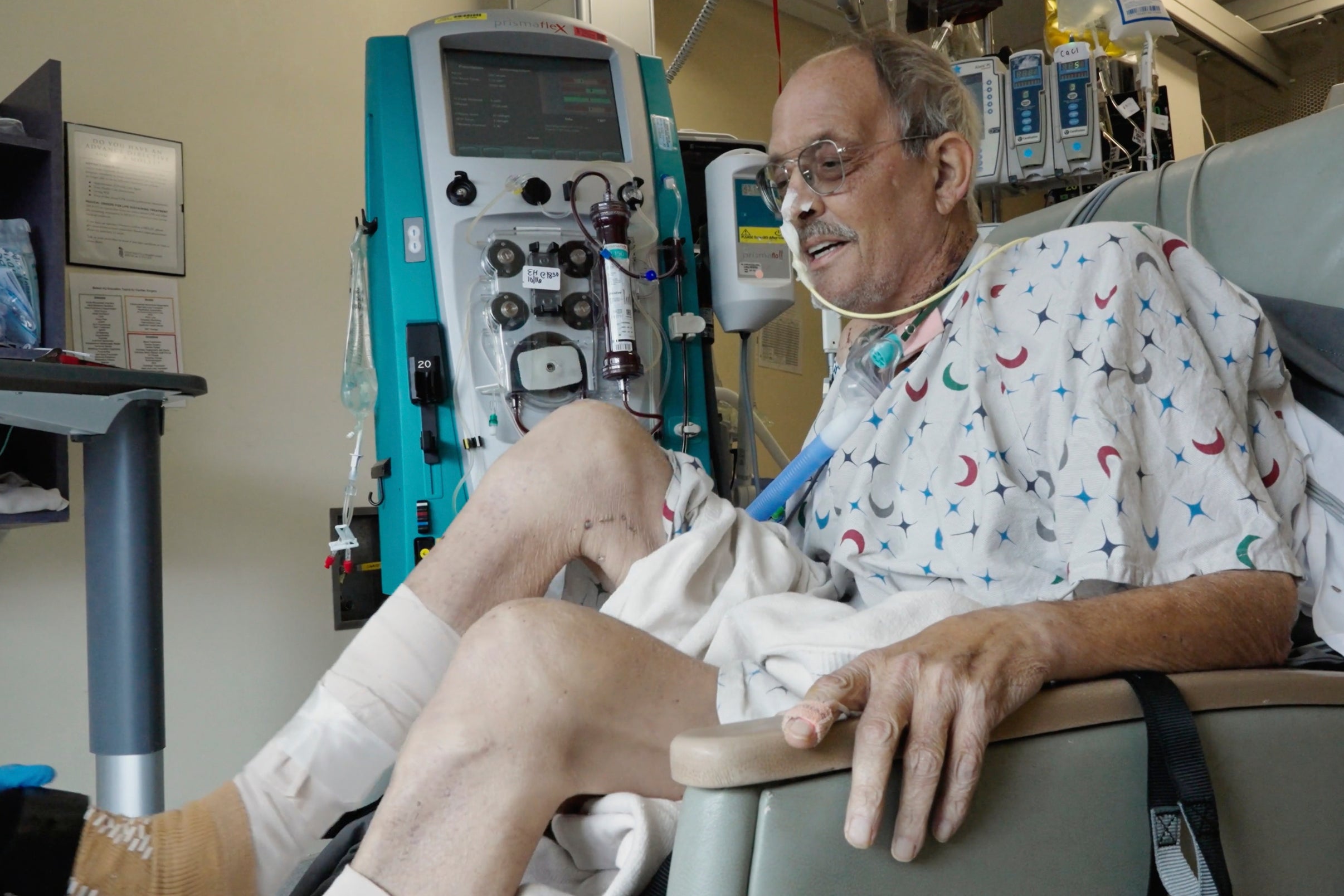Maryland man, 58, who received pig heart transplant last month reaches major recovery milestone
Lawrence Faucette can already stand on his own and is working on walking again
A 58-year-old man who received a transplanted heart from a pig at the University of Maryland School of Medicine last month appears to be improving and hasn’t yet shown signs of rejecting the organ, according to the Associated Press.
A recently released video shows Lawrence Faucette working with a physical therapist to regain his strength.
Mr Faucette was dying of heart failure before he received the transplant on 20 September; he wasn’t eligible for a human heart transplant due to other health conditions.
His case is the second in which University of Maryland doctors have tried to use a pig’s heart to save someone dying from heart disease: last year, the team performed the first transplant on David Bennett. He lived just two months with the pig’s heart; though it’s thought that a pig virus may have contributed to his death, the official cause has not been determined.
Before performing their second transplant – on Mr Faucette – the team reportedly implemented better virus testing on the pig heart.
Another research team at NYU Langone Health recently transplanted pig hearts into two recently deceased people who were being kept alive by ventilators.
Research on animal-to-human organ transplants – sometimes called xenotransplants – has been popular in part because the demand for transplantable organs exceeds supply, per the US Food and Drug Administration (FDA).
More than 104,000 people are on the transplant waiting list in the US, and, each day, 17 people die waiting for a transplant, per the Health Resources & Services Administration (HRSA).

Another individual is added to the waiting list every 10 minutes, and more than 42,000 transplantations were performed last year. Doctors have long encouraged the public to consider registering as an organ donor, since one single donor can save up to eight lives. That said, though 170 million people in the US are organ donors, relatively few deaths result in successful organ transplants: Only three in every 1,000 people die in a way that allows for organ transplantation, per Penn Medicine.
Though scientists have been working on xenotransplanation techniques for decades now, the results have been largely unsuccessful. When an animal’s organ is put in a human’s body, the immune system usually immediately destroys the foreign tissue.
But there are currently no signs that Mr Faucette’s body is rejecting his new heart.
A spokeswoman for the hospital where he is recovering told the Associated Press that Mr Faucette is already able to stand, and that physical therapists are helping him work toward walking again.
“His heart is doing everything on its own,” Muhammad Mohiuddin, MD, director of the cardiac xenotransplantation program at the University of Maryland School of Medicine, told the Associated Press.
Join our commenting forum
Join thought-provoking conversations, follow other Independent readers and see their replies
Comments


Bookmark popover
Removed from bookmarks